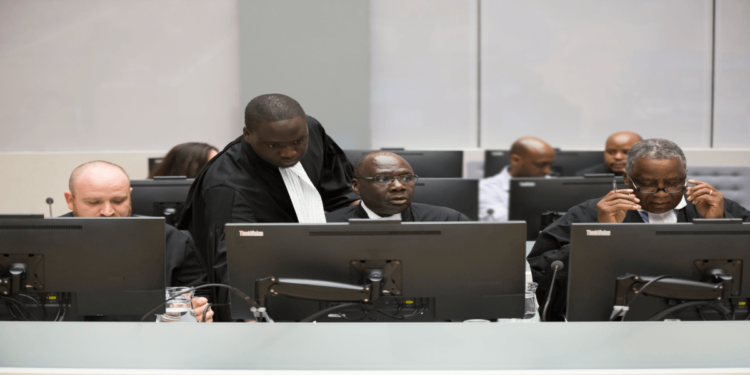By Kwamchetsi Makokha
Dominic Ongwen’s lawyers are demanding to know the identity of a Ugandan People’s Defence Forces informant whose information was used by prosecutors in the crimes against humanity case at the International Criminal Court.
Ongwen’s lawyers, in a new filing signed by Krispus Ayena Odongo, noted that the UPDF informant’s identity has been in the Prosecution’s control since November 23, 2007 and, as the information in associated items suggests, this evidence is potentially exculpatory and relevant to the defence of duress, should be disclosed to the defence team.
Although ICC Judge Bertram Schmitt, acting as Single Judge on behalf of the Trial Chamber, had ordered the prosecutor to disclose the identity of the UPDF informant, the Uganda government wrote a letter asking that the witness’ identity continue to be concealed because of concerns about the risk of “revenge attacks and stigmatisation against the informant as well as against the informant’s family members”.
The battle over disclosing the identity of the UPDF informant has been running for over 10 years. On November 8, 2007, the prosecution requested the Uganda government for information relating to the death of Vincent Otti and received the UPDF report and the sound recording two weeks later.
On 16 March 2018, Judge Schmitt ordered the prosecution to provide the sound recording, and the identity of the UPDF informant, but allowed it five days to file a substantiated request for non-disclosure. He found that the prosecution was obliged to provide the identity of the UPDF informant. The prosecution attached the Ugandan government’s letter to its request but Ongwen’s lawyers opposed it saying withholding the UPDF informant’s identity was prejudicial to Ongwen’s right to a fair and impartial trial.
Ugandan authorities had argued that disclosing the informant’s identity would discourage citizens from joining the intelligence forces.
Given that the Ugandan Government disclosed the UPDF informant’s identity to the prosecution without any reservations in 2007, and that the reservations are being made now – after more than 10 years, Odongo argues, it can be inferred that the activities of the UPDF informant and enhanced the capacity and ability to exercise control and command over Ongwen during the period when crimes for which he is charged occurred.
The UPDF informant’s intelligence enhanced the UPDF operations against the LRA, including against Ongwen during the period during which the crimes for which he is charged occurred. Ongwen is facing with 70 war crimes and crimes against humanity charges in respect of attacks on camps for internally displaced persons in Pajule, Odek and Lukodi in 2003.
In the filing, lawyer Krispus Ayena Odongo, says the UPDF informant may have played a major role in spying on the members of the Lord’s Resistance Army, in which Ongwen was a commander, and providing with information about any attempts to escape from the LRA, including Ongwen’s own attempts to escape.
The filing claims that since the informant was someone with connections to the military and intelligence services, he may know of the threats to and surveillance on Ongwen. “Given the references to speaking on the radio for the first time, this suggests that the UPDF informant’s identity is highly controversial,” the lawyers say in their May 14 filing.
Odongo alleges that the UPDF informant’s identity is embarrassing and detrimental to the prosecution case.







